 Why do so many authors suffer from “Imposter Syndrome”? It seems that every other Tweet or Facebook post that I see from authors doubts their ability to write, yet they are unlikely to choose writing as a career (or at least an ambition for a career) unless they actually are able to write in a coherent manner. I’m not talking about false modesty, or “humblebragging” as it is sometimes known, which I also see a lot of. That is a whole different thing. A typical humblebrag would look something like “I can’t believe it! I’ve just been asked for a full MS from an agent!” (the exclamation marks are typical of humblebragging punctuation). The use of “I can’t believe it” doesn’t make the brag about being asked for a full MS any less of a brag. 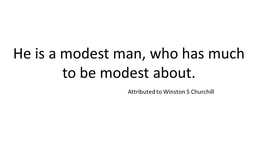 I’ve got nothing against the bragging part of it. If an author has been asked for a full MS by an agent, or has just signed a publishing deal, or has just sold the first copy of their book, then that is something worth bragging about. No, it’s actually the “humble” part I don’t like. The author isn’t fooling anyone with it. Own it, boys and girls; just own it. But imposter syndrome is something very different. Imposter syndrome is a feeling that successful people get that they aren’t worthy of the accolades that they are receiving. They feel that they don’t deserve it and that it has all been a big mistake and one day they’re going to get found out.  Most common amongst women and people of colour. Most common amongst women and people of colour. The term was first used by psychologists Pauline Clance and Susanne Imes in their 1978 research paper on the subject. They noticed that a lot of their female students seemed to feel that they didn’t deserve their places in college, even though they were more than capable. Their research was mainly conducted on women, who seemed to suffer a lot from imposter syndrome, possibly because women have historically had their abilities questioned (especially by men), so they have come to question it themselves. Later research found similar behaviour in people of colour for pretty much the same reason. More recent research has shown that anyone can suffer from imposter syndrome, but it is more common amongst women and people of colour. "But why do so many authors appear to suffer from it? " At its worst, imposter syndrome can lead to mental health issues because of the anxiety it causes sufferers. At its best it creates self-doubt, which is demotivating and it can lead to self-sabotaging behaviour, such as perfectionism. It doesn’t matter how many times people tell sufferers that they are good at what they do, imposter syndrome will always undermine any sense of achievement. But why do so many authors appear to suffer from it? There are a couple of reasons why we do suffer. One of the greatest is family and friends who don’t seem to think we have what it takes to write a book. They can believe in us as carpenters, plumbers, bank managers, marketing executives or whatever because we are, or were, employed as those. But you have to be special to be an author, right? Actually, no, you don’t have to be special, as any author can tell you. All you have to have is an idea, a basic sense of plot and character construction (both of which can be learned) and some basic written English skills.  You - an author? You - an author? But that lack of faith in us can undermine our own view of ourselves, especially if said friends and family haven’t actually read our books, so they continue to doubt us without having any evidence of our true capabilities. It goes back to the research carried out by Clance and Imes, where people (generally males) didn’t have faith in the capabilities of women, so women tended to absorb that lack of faith and reflect it back upon themselves. Just try being blond as well and see how much worse that feeling might be. But I think that the other main reason is that we are too ready to compare ourselves to the great figures of literature and we don’t feel we measure up well. And I think this stems from the way literature is taught in schools. This creates false comparisons. 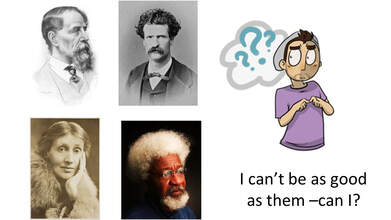 In all professions there are leading lights; the great movers and shakers who change their industry or redefine their art in some way. Let’s keep away from writing for the moment and use music as an example. Mozart, Beethoven, Chopin and similar figures are held up as the benchmarks against which all other musicianship must be judged, or so we would be led to believe if our high school music teachers had their way. I’m not going to question the abilities of those composers, they were undoubtedly great, but that doesn’t mean that every other composer or musician isn’t also competent. Our orchestras are full of competent musicians, of which a few will be recognised as great soloists. Some might even earn the title of “Maestro” or “Maestra”. But that doesn’t mean the rest are bad. We can extend the argument into the realm of pop music. Lennon and McCartney wrote great songs and the Beatles were a great band. But that doesn’t mean that no one since has written a great pop song, nor that any band since wasn’t as good as The Beatles. By and large it is the paying public who decides which bands are great and which aren’t – not high school music teachers.  Just how much do I suck? Just how much do I suck? The same applies to literature. It is the book buying public that decides who is a “great” author, not English Literature tutors. The teachers can examine a book and tell you why it is well written and why it was hailed as a “classic”, but that is not the same thing as the author being popular. If it were, then Dickens and Twain would always be in the best sellers lists and no one would ever have heard of Dan Brown. If you only compare yourself to Charles Dickens, Mark Twain or Virginia Woolf, you may feel like an imposter. The same applies to modern writers. We’re not all going to win the Booker Prize or the Nobel Prize for Literature. But just because you aren’t spoken of in the same way as the winners doesn’t mean that you are unworthy of any success you may achieve. Stop beating yourself up, as the saying goes. If readers are buying your books and you are getting good reviews, it means you are a good writer. Enjoy that feeling.  Just because your books don’t make it into the Sunday Times (or New York Times) best sellers list, it doesn’t make you an imposter. You have to sell around 100,000 copies to make even the lowest entry into those lists and very few authors manage that in a year (about a hundred, in fact). So, if you only sold 90,000 copies, it doesn’t make you an imposter. And even if you only sold 1 copy, it doesn’t make you an imposter. All that means is that you haven’t yet been discovered and you need to do more marketing to get your books in front of the reading public’s noses. But above all you must remember that you chose to be a writer. No one puts a gun to an author’s head and makes them write. What made you choose to write was the desire to tell stories. And so long as you continue to tell stories, you will never be an imposter. If you have enjoyed this blog, or found it informative, be sure not miss future posts by signing up to our newsletter. Just click on the button below and you will also qualify for a FREE eBook..
0 Comments
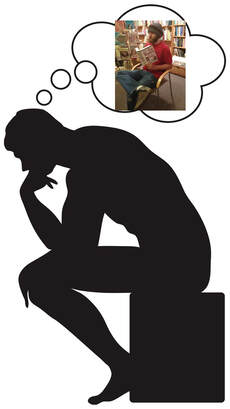 In an earlier blog, a book review as it happens, I mentioned that I created a mental image of the sort of people that I think buy my books. It helps me if I have them in mind when I’m writing, because I can tailor my writing style to them. There is nothing new in taking this sort of approach. In marketing terms, it is P for people, which means understanding the sort of people who are going to buy a product. If you are creating fashions that appeal to women in their late teens to early twenties, for example, it is important to know what sort of styles, colours and fabrics those consumers are attracted to. It will be totally different to those that appeal to women in their 50s and 60s. Get it right and you sell lots of product, get it wrong and you are left with thousands of items unsold – and a reputation for being a brand that is out of touch.  Know your audience! Know your audience! I could give loads of examples of how manufacturers adopt this approach, but I would quickly bore you and I have no desire to do that. But market research plays a huge part in developing a product, just to find out what the buying public finds attractive and what they don’t. Pretty much every product has its “ideal” consumer. And, at the most basic level, a book is just another product, so knowing your audience, or consumer, is important to authors for the same reason. If you use a lot of modern slang in your writing, you are not going to write a book that appeals to readers for whom such slang is as alien as a foreign language. But there is more to it than that.  Sci-fi audience Sci-fi audience Certain types of fiction attract different types of reader. Research was carried out into readers of sci-fi and fantasy, collectively known as SFF. It was discovered that there is a strong correlation between people who take an interest in science and those who read SFF. The findings report that SFF readers start at a young age, typically under 20. They read more than the average number of books per month. Boys have a higher preference for sci-fi and girls have a preference for fantasy, though both are likely to read either. And perhaps most importantly, the study found that SFF readers have a higher level of educational achievement compared to other reading genres. The most important take-away from that is educated readers usually have more sophisticated tastes. They won’t put up with poor quality writing. So, if you are an author who writes in either of those genres, expect your readers to be well educated. They will have a good understanding of science and, for fantasy, they will probably have a good working knowledge of mythology, demonology etc "There are obvious age divides in some markets." If you forget that, you might find your books don’t attract readers and you may also find that those that do sell don’t get good reviews. Are you an SFF author? Did you know that? There are differences in other genres as well. Unsurprisingly, women are bigger readers of romance, but they are also bigger readers of thrillers, which came as a bit of a surprise to this author. Also, thriller and crime readers tend towards the older generations, with 35% being over 65, but less than 5% being under 30. So, in terms of the language used in thrillers and crime novels, it is best to stay away from modern idioms and slang if you want to reach the largest audience. There are obvious age divides in some markets. “Young adult” is such a market. Those readers will be well versed in modern slang. So much so that in three year’s time, a whole new audience will have emerged who can’t relate to the language that was used just a few years earlier.  Age gap Age gap This means that YA fiction dates very quickly, unless the author is very careful in their choice of language. It has to be “young” enough to appeal to that age group, but also won’t go out of date too quickly and result in poor sales in a few years’ time. YA readers outgrow the genre quite quickly, looking for new authors that appeal to their developing maturity, so there is no longevity, the way there is in other genres. Capture the attention of a thriller reader at 30 and you pretty much have their attention for the rest of their life. Capture a YA reader at 13 and you’ve probably lost them by 18. So, the YA author has to keep looking for the next audience, not just for their new books, but also for their existing books. Personally, I would avoid writing YA for that very reason, because the marketing effort is never ending. It also means that output has to be higher to satisfy the existing audience before they outgrow the genre. 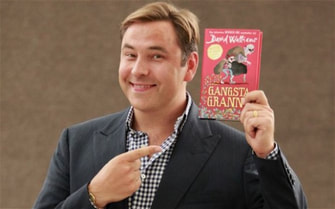 Children's author David Walliams Children's author David Walliams This same problem also applies to writers of children’s books. If Mum or Dad were fans 15 to 20 years earlier, then they may buy the books for their children, but otherwise the author has to rely on a lot of peer influence to make their books popular. My grandson reads the books his school friends read, not the ones his parents want him to read. For example, The Chronicles of Narnia collection, by C S Lewis, rank only 5,600 on Amazon, but the latest David Walliams book is ranked at 13. In 20 years time you can say “David Walliams” and the children won’t reply “Yeah, I read his books”, as they do now, they’ll reply “Who?”. The author of the books they will be reading is probably still at school him or her self right now. So, who is your generic reader? Are they male, female or both? What age are they? What sort of educational levels have they achieved, or will they achieve? What are their hobbies and interests? What language will they relate to and what will make them throw your book at the wall? It isn’t always easy to answer those sorts of questions, but you can start close to home. Do you write the sorts of books that you also like to read? If so, then you probably conform to the norm for your genre except for, perhaps, gender. Just because you are male (or female) it doesn’t mean that only men (or women) will like your books, because some genres have cross gender appeal. Others, however, don’t. 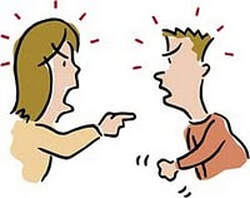 Some men won’t buy books with a female protagonist and some women won’t buy books with a male protagonist, because they can’t identify with them. Others have no problem with either. And if there are gender issues that limit your audience size, then you can bet your life that there are also further limiting factors, such as sexual preferences. Will a book with strong LGBTQ+ content have a wide appeal amongst heterosexual audiences? It's more like to be read by a niche audience and niche markets are unlikely to result in fame and fortune (if those are your goals). Ultimately this is important not just in terms of who will buy your books, but also how you market your work. There is no point in directing your limited advertising budget towards the wrong audience, or one that is heavily biased in terms of gender, age, educational achievement or any other characteristic. It also matters when it comes to where you promote your work. If you are a writer of children's books or YA, don't bother with Twitter or Facebook, because your readers are all on Tik-Tok. As for the older generations, the older they are, the less likely they are to be on social media in the first place. Reader loyalty doesn’t come about by accident. It comes about because you understand your readers and your readers understand your books. If you have enjoyed this blog and want to be sure of not missing the next one, just sign-up for our newsletter by clicking on the button below and you will also qualify for a FREE eBook.. 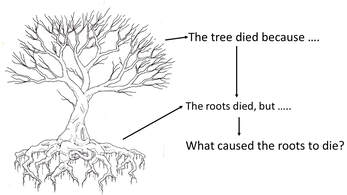 "Root Cause" "Root Cause" There is something in the field of quality management called “root cause analysis”. You may now be asking what this has to do with writing books. I’ll get to that in a minute or two, but first of all I’ll have to explain what root cause analysis is and how it works. Basically, it is an assumption that when something goes wrong in a process, the visible signs are very rarely the root cause of what went wrong. To make sure that the same problem never occurs again, you have to find the root, or real, cause of the problem. It is the difference between treating the symptoms (a headache, say) and treating the cause (a brain tumour). Aspirin may temporarily relieve the pain of the symptom, but it won’t cure the brain tumour. Let me give you a worked example.  Guess the cause! Guess the cause! Car A is driving along the road and approaches a stop sign. Being driven by a good driver, the car is brought to a controlled stop in the right place. Car B, following on behind, then crashes into the back of Car A. The assumption, at this point, might be that the driver of Car B wasn’t paying adequate attention and therefore didn’t see Car A coming to a stop and ran into the back of him. Only by asking questions would it be possible to establish if that assumption was correct. In quality management a tool that is used is called “The 6 Whys”. Basically it means that by asking six “why” questions in succession it is possible to find out what the real cause of the accident was. So, question 1 might be “Why did the driver of Car B fail to stop? There are several possible answers, only one of which will be true. For the sake of this illustration, I’ll say that the actual answer is “Because the car’s brakes failed.” The second why question would therefore be “Why did the brakes fail?” Again, there are several possible answers, only one of which will be true. If you ask a further 4 “why” questions in this vein you might get to an answer that is “Because there is a flaw in the manufacturing process for a minor component that hadn’t been previously identified”. Obviously more evidence than just one accident would be needed before that conclusion could be drawn, but gathering that evidence, such as data on other accidents, would be part of finding the true answer.  Brake failure? Or inattentive driver? Brake failure? Or inattentive driver? So, the root cause of the accident is that flaw in the manufacturing process and unless that flaw is corrected, other accidents involving brake failures are bound to occur. That is a long way from “Driver B wasn’t paying attention to his driving”. It is just that sort of process that leads to product recalls on cars, sometimes several years after production started, to rectify defects that have been subsequently identified. If you work in a place where the same problems keep on occurring, time after time, then you might want to carry out this exercise for yourself, or in conjunction with your colleagues. By identifying the root cause of those problems – and getting them fixed - you could earn yourself some kudos (and all that goes with it). Even if Driver B wasn’t paying attention, to get to the root cause of the accident we would have to ask another 5 questions. It might turn out that he is suffering from undiagnosed ADHD, for example, rather than just being distracted by his phone ringing.  It's not just icebergs that have hidden depths. It's not just icebergs that have hidden depths. But that leads us onto the real subject of this blog: What does this mean for you as an author? It means that you can build multi-layered characters by showing your readers that what they see on the surface isn’t necessarily what is going on underneath. In characterisation, we call this “having hidden depths”. Let’s take a typical character trope, the cop who drinks too much and prefers to work alone. It’s easy to establish that he drinks too much because his partner got killed in a shoot-out and that he wants to work alone because he’s reluctant to get emotionally attached to other cops in case the same thing happens again. Those are just the answers to the first 2 or 3 “whys”. But if you were to ask yourself a 4th why you might find out that the cop has suffered major losses in his life before. A 5th why might be that he feels responsible for the earlier loss and the 6th why is because he was blamed for the loss even though he was too young to even know what loss was about. 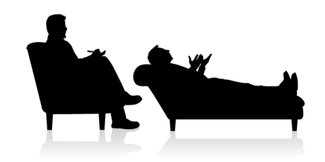 Anyone who has ever gone through counselling (therapy as our American cousins call it) may recognise the depth of questioning necessary to reveal those sorts of emotional scars. But as an author, you can build that character from the ground up to give them hidden depths and secret anxieties. More importantly, you develop them from being a trope into being a ‘real’ person. You don’t have to reveal all that to the reader, at least, not all in one go. It may be something that you keep to yourself or reveal over a series of stories. But when it comes to deciding how your character(s) will react in any situation you put them into, you can draw on that depth of understanding of their emotional baggage to make them more interesting, to make them react consistently and to make them believable. 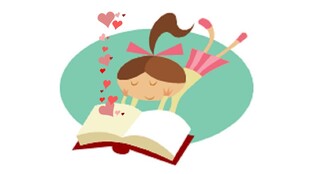 Emotional engagement. Emotional engagement. In many novels it is very difficult to understand what motivates a character if the author hasn’t actually explained it. Because of that it is difficult to believe in the character and a lack of belief creates a lack of emotional engagement from the reader. And if the reader doesn’t engage with the character on an emotional level, they don’t care what happens to them and they stop reading the book. That might not matter if you only write one book. After all, the reader has already bought it. But if you want to write a second book, it is important. If your first book didn’t engage the reader, they won’t buy your second book. And if they post a bad review of your first book, it will impact sales to other people for all your books, even if they are in a different genre. So having interesting characters is a big deal. This is the difference between plot led and character led fiction, which is an on-going debate in writing circles. Here at Selfishgenie we’re very much in the ‘character led’ camp because a good plot can’t make up for badly drawn characters. Good characters, however, can save a poor plot – as many a Hollywood movie has demonstrated. Why would my character do that? The place to start in this “root cause” journey is with the initiating event, as it’s known. The things that gets the story moving and gets the character involved in the action. Ask yourself “Why would my character do that? What is their motivation? Is that motivation enough to keep them going when the going gets tough?” 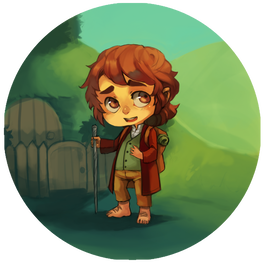 A simple Hobbit A simple Hobbit These are questions I asked myself a lot when reading Lord of the Rings. As in “Would a simple Hobbit really keep going in the face of all that opposition? Wouldn’t they just throw the flipping ring into the neatest river and hope for the best?” I’ve read the book several times and the character of Frodo always makes me ask those questions and I’ve never really reached a satisfactory answer. Strength of character and determination to succeed don’t even begin to satisfy as motives. In some types of plot, the triggering event goes with the territory, because it’s the character’s job: police stories, spy thrillers etc. In those cases we have to take a step back and ask questions about why the character got into their job in the first place, as well as why they stay in it when things are going so badly. When we give feedback to authors who submit their manuscripts to us, we often refer to characters being “two dimensional”. It is the deeper motivation of characters that give them their third dimension and make them more human, more realistic. This is especially important if the characters are to go beyond the everyday experiences which we all go through and into worlds where they place themselves in mortal danger. We know we couldn’t do those things – but we have to believe that the character(s) can. Motivation is what makes us believe and motivation comes from deep within – whether we are real people or characters in books. I’m not saying that this sort of analysis is the only way to build good characters – there are many others, I’m sure. But if you are struggling with creating believable characters, this simple tool, "the 6 whys", may help you to add new dimensions to them. If you have enjoyed this blog or found it informative, why not make sure you don't miss future editions by signing up for our newsletter. Just click the button below and you will also qualify for a FREE eBook. 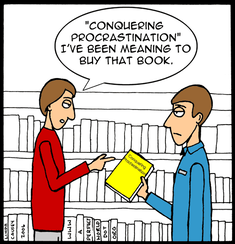 In 1742, poet Edward Young said “Procrastination is the thief of time”. Mind you, he didn’t actually get around to saying it out loud until 1743. No, that’s just my little joke. He said it in the poem “Night Thoughts on Life, Death and Immortality”. I’m not sure if authors are the worst when it comes to procrastination, but if the Selfishgenie Twitter feed is anything to go by, it certainly seems to be that way. In fact, research suggests that 95% of people procrastinate to some degree. It’s just more of a problem for some people than it is for others. Procrastination is not the same as laziness. Many procrastinators are actually highly productive; it’s just that what they produce isn’t necessarily what is important.  For example, my own favoured form of procrastination is writing blogs. Especially when I should be editing. Either that or writing wonderfully crafted letters to the media about something of great importance in the world. Some of them have even been published - but compared to what I should be doing, they aren't important. At the extreme end of the scale ADHD, OCD, anxiety and depression are all associated with procrastination. So, you could actually be harming your mental health by not doing what you know you should be doing. Procrastination definitely causes feelings of tension and stress, which are both triggers for anxiety and depression. Social media is one of the places where you will find a lot of people procrastinating. It is the ideal place for them to go. They may genuinely mean it when they say “I’ll just take a quick look, just to see what’s trending.” Then, 3 hours later, they’re still there and haven’t done a single bit of work, whatever their work may be.  There are many reasons why people procrastinate. Some believe that they work better if they are up against a deadline. Back in the old days, when I used to manage a team, I could always tell when someone produced their work right at the last minute. For a start, it was usually substandard because it hadn’t been given enough time for research, colleague input, proof reading, editing or re-writes. Or maybe I was just able to recognise the hunted look in my team member’s eyes when they saw me approaching, knowing that at any moment I might ask to see the work I’d asked them to produce a week before and was due on my desk in under an hour and they hadn’t even started it. Other people procrastinate because they think that whatever needs to be done will be challenging in some way and they want to put the task off in the hope that it will go away (it rarely does). That’s not good for an author. If you have an idea for a story, but you are putting off writing it, then you have to ask yourself if you are really cut out to be an author. If you aren’t contracted to produce a book by a certain date, then the only person who is going to suffer from any delay is you. You are bound to feel frustrated if you haven’t even made a start on it. 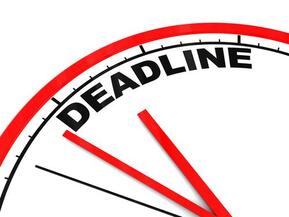 And if you are working to a contractually binding deadline, then re-read my observation above about work being substandard if it’s left to the last minute. I know plenty of authors who procrastinate not because they don’t want to write the story, but because they are worried that when they have finished and they try to find an agent or a publisher, no one will be interested. Or if they self-publish, no one will want to read their book. This fear puts them off finishing their work, because they don’t want to have to face that judgement. So, instead, they will re-write the same chapter (or paragraph or even sentence) time after time, telling themselves they’re trying to find perfection. But all they are really doing is putting off finishing their book. 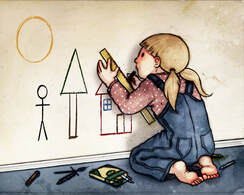 Procrastination and perfectionism go hand in hand. Procrastination and perfectionism go hand in hand. Procrastination and perfectionism are well known to go hand in hand. The question is, does the desire for perfection lead to procrastination, or does the desire to procrastinate lead to perfectionism? What we don’t admit is that there is no such thing as ‘perfect’, but there is plenty of ‘good enough’. This is essentially fear of the unknown. The author doesn’t know how good their work is and is afraid it might not be good enough. A pessimist is more likely to procrastinate than an optimist under those circumstances. Journalist James Surowiecki said that many procrastinators are ‘self handicappers’. Rather than risk failure, they create conditions that make success impossible. I think most procrastinating authors can relate to that. Other people procrastinate because they are worried that when they have finished whatever they are doing, they won’t have anything to move onto, which will leave their lives feeling empty.  Essentially there are three types of procrastinator: those that do nothing (or hang around on social media, which amounts to the same thing), those who do something less important than what they should be doing, or those who do something that they consider to be more important. Surprisingly, getting unimportant things done and getting more important things done are both regarded as being ‘good’ forms of procrastination. By getting the unimportant stuff out of the way, we actually create time to do the more important task, without having to step away from it later to return to the mundane tasks. For example, you want to spend three hours writing, but instead you find yourself doing the laundry, preparing dinner and walking the dog. But that’s great because when you start writing, you won’t have to stop and do those things later and you can focus for three hours non-stop. Doing more important stuff, rather than sitting down and doing the thing you want to, eg writing, also works. So when you do sit down for a couple of hours to write you (a) haven’t anything more important to do that is nagging at you and (b) you can feel virtuous for getting the important stuff out of the way first. "But there are some things you can do to defeat procrastination." But is there an actual ‘cure’ for procrastination? The first thing to do is identify why you are procrastinating. I have suggested a few reasons already, but there are probably more. Only you can know why you are either delaying starting things or delaying finishing them (both are forms of procrastination). Once you have answered the “why” question, you can then start to address the issues, such as lack of confidence in your own ability. But there are some things you can do to defeat procrastination. Commit to the task. Focus on doing, not delaying. It may be helpful to set yourself a deadline for completing something. Perhaps saying “I will write 1,000 words by 4 pm.” Promise yourself a reward for completing what you set out to do. It doesn’t have to be something big, just a 10 minute break for a cup of coffee, or maybe a slice of cake with the coffee you were going to have anyway. Or perhaps 10 minutes catching-up on social media (but make sure it is just 10 minutes).  Minimise distractions Minimise distractions Re-phrase your wording. Don’t say “I need to” or “I have to”, say “I want to” or “I choose to” instead. It is far more likely that we will do the things we want to do than the things we feel we have to do. Minimise distractions. I know, more easily said than done, especially if you have family buzzing around in the background or demanding work colleagues. But there are things you can do. Log-off all social media, so it isn’t pinging away in the background, tempting you into paying it attention. Close down your emails, unplug/switch off the phone, close the door. And if you can’t escape from the family, then work at a time when the family aren’t going to be so much of a problem. For example, if you have a young child, work when the child is napping. Work when older children are at school or organise play dates for them, so they aren’t calling on your time. And tell your partner to make their own damn coffee. If a colleague is demanding attention, agree a set time to meet, when it’s convenient for you (if procrastination is the thief of time, demanding work colleagues are master criminals). If the task is a really big one, break it down into much smaller chunks. Don’t set out to write a book. Set out to write a paragraph – or even a sentence. When you have completed that, write the next paragraph and so on. John F Kennedy may have set a goal of putting a man on the Moon, but NASA actually achieved that goal by solving one small problem at a time. 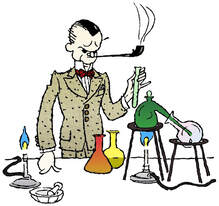 Coffee based procrastination Coffee based procrastination As mentioned above, get the routine chores out of the way first – and quickly. You can then concentrate on what you want to do without feeling any guilt. Don’t turn small things into big ones. A cup of coffee really is just a cup of coffee. It doesn’t have to be made with hand ground beans which you have to slow roast first. Yes, we know those people. We may even be those people. If you want a slice of cake you don’t have to bake it, you can just buy it. You know you are procrastinating when you actually start looking for those sorts of time-wasting activities. But it all starts with knowing that you are procrastinating in the first place. If you don’t realise you are doing it, you can never hope to stop doing it. If you have enjoyed this blog, or found it informative, be sure not to miss future editions by subscribing to our newsletter. Just click on the button below - and you can also get a FREE eBook for subscribing. But don't procrastinate - do it now.  Internet trolls! They get everywhere these days. They’re mainly to be found on social media sites such as Facebook and Twitter, but they can turn up anywhere. You’ll find them in the reviews section of Amazon and other retail sites (the 1 star end of the scale, naturally). They also appear on Goodreads and similar sites. It wouldn’t surprise me if a couple turned up in the comments section of this blog because, let’s face it, they’re not going to like what I have to say about them. I’m not sure if trolls attack authors any more than they attack anyone else, but let’s face it, if you are trying to do something worthwhile, someone will always try to bring you down, which is pretty much the job description of a troll. Some of them may not even think of themselves as being trolls. They just think they're "telling it like it is" (or similar euphemisms to justify obnoxious behaviour) It's easy to say “block them and move on”, but the hurt has already been felt the moment the words are read. And that’s what the trolls know. You can’t un-see and you can’t un-feel. It can leave you feeling low for the rest of the day and even longer. It can make you want to hurt them back, even though you are a nice person who wouldn’t otherwise dream of hurting anyone. It can even make you want to hurt yourself.  It would be nice if the social media platforms et al were to do something about them, but trolls are customers too, so they don’t take action. Not that the trolls spend any money, but the platforms do receive income from any ‘clicks’ they might make on adverts during their daily round of trolling. That was how I experienced my most recent interaction with a troll. I was doing an on-line book promotion for one of our authors, offering a free download of one of his books. I paid a certain social media giant to get that message in front of ‘interested’ users of the platform and, a few days into the promo I received a comment saying “You can’t reduce the price low enough for me to buy this book.” Not the greatest insult in the world, I grant you. Oscar Wilde, if he were still alive, would have no worries about that person stealing his laurels, but it didn’t stop it being a little bit hurtful for the author. "Yes, I actually paid to be trolled." The thing is, because the troll had responded to the advert, I had to pay the social media company. Yes, I actually paid to be trolled. So, I blocked him and moved on. Only I didn’t, did I? Because if I had, you wouldn’t be reading this blog. There are a couple of things we can guess about the person who made the comment. The first things is that he (they are predominantly male) hadn’t actually read any of our books. The second is that they probably don’t read books in the first place. Books enlighten and trolling is a product of ignorance. So, what motivates trolls? "So why do they do it?" It would be easy to dismiss their behaviour as the modern equivalent of the school bully. They do it because they can. But that shows a lack of understanding of bullies. Bullies do what they do not just because they can, but because it demonstrates their power over their victims, especially to those people that hang around bullies, desperate not to become victims themselves. Trolls don’t have hangers on like that, so what they do doesn’t demonstrate their power to anyone. Even those people who actually see the insult on social media won’t know the true identity of the person who posted it. So why do they do it? The real reasons are different and they are several. Trolls don’t all do it for the same reason. Dr Mark Griffiths, Professor of Behavioural Addiction at Nottingham Trent University, gave four reasons: revenge, for attention, out of boredom and for personal amusement. Yes, they find it funny, even if no one else does. 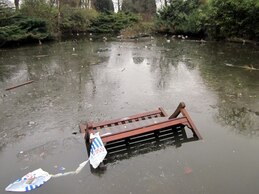 I wouldn’t want to disagree with Dr Griffiths (but you know I’m going to) but I think it runs deeper. I think that the lives of most trolls are so empty and unfulfilled that they can’t stand to see anyone who is living a happy, fulfilled life, so they try to bring them down in the only way available to them. They are similar to the vandals who trash parks, gardens and beauty spots. Their own lives are so bleak and lacking beauty that they can’t stand to see beauty anywhere else. So, you are a happy fulfilled person, expressing your views on Twitter or Facebook, celebrating your successes, bemoaning your minor failures or promoting your work. And they can’t stand your sense of wellbeing, your apparent success, the fact that your problems are quite small compared to theirs and that you are actually achieving things through your work. They can’t stand the fact that you are doing something worthwhile. So they set out to damage that sense of wellbeing. Well, what about the people who are suffering larger problems, like mental health issues, illness or bereavement? They get trolled too. "It gives them an even greater thrill." . Yes they do, but for much the same reason. It’s not enough for the troll that you are feeling low because of whatever is happening in your life. No, that just makes you a soft target. They can make you feel even worse, which is what they want to do. It is a form of sadism. It gives them an even greater thrill. Of course, they have nothing to feel good about. Their lives are still as vacuous as they were before. Their existence is still as pointless. If they are lonely, they will still be lonely. If they are poor and/or unemployed, they will still be poor and/or unemployed. If they can’t form proper relationships, they will still be unable to do so. If their boss is always on their back at work, their boss will still be on their back at work. But for a fleeting few seconds after they hit the key to post their nasty little insult, they feel powerful. In that instant they no longer feel like the losers that they really are. Of course, it doesn’t last. As I said earlier, there is no one there to see their power, so they can’t bask in the fake adoration of their minions. The feeling is so fleeting that they have to start looking for a new target almost immediately. Which is why most trolls spend so much time on-line in the first place. They are addicted to that fleeting moment of pleasure, because they can’t get it anywhere else. 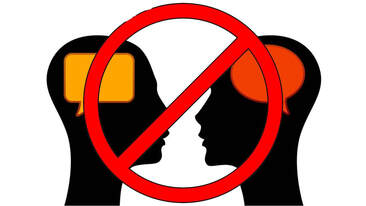 OK, understanding what makes a troll tick doesn’t do anything to get rid of them. Is there actually anything you can do? The first and most important thing is DO NOT INTERACT. If you respond in any way they will know they got to you and that increases their feeling of pleasure. Even if they have sent you into floods of tears, they mustn’t know that they have had any effect on you at all. Report their behaviour. In the short term not much will happen, but if enough people report them, they will be banned from the site. Their IP address will be blocked, which means they won’t be able to re-register under another name unless they do so from a different IP address. Eventually they’ll run out of tech they can use and will have to resort to internet cafes, which cost money. The next thing you must do is block them (if the site has that facility). If not, use whatever contact facilities are available to you to get the troll blocked. On most platforms they won’t even know you have blocked them, but at least it’s one less troll for you to worry about (until they open a new account with a new username). If enough people block them, it will help the site to decide if they should be banned. 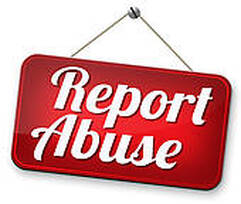 Don’t post on-line that you have been targeted. There’s a good chance that the troll will see your post through the feeds of other people, especially when some people share so indiscriminately. It also encourages other trolls that may see your post. You will be helping them to identify you as a ‘victim’ and trolls love victims. Nothing is private on the internet. You have to assume that your post will be seen by trolls as well as by nice people. If the abuse is really bad, especially if it is racist, homophobic, transphobic, misogynistic or similarly harmful, report it to the police and contact the platform owners using a more direct route than the simple reporting tools that are available. Somewhere there will be a corporate email address or phone number you can use – so use it. Make sure that they understand the emotional impact the trolling is having on you. Make them take responsibility for the bad behaviour of the users of their site. "But we all need to think about our own behaviour" Now all I can do is wish you a happy and a troll free week. But we all need to think about our own behaviour, too. Any of us could be considered to be a troll simply because of the language we use. There is a simple rule to follow: ask yourself if you would say it to someone’s face. If the answer is ‘no’, then its best not to say it at all. Or rephrase it in a way that would allow you to say it to their face. Other than trolls, hardly anyone ever sets out to be offensive, but it’s very easy to cause offence by accident. If you have enjoyed this blog or if you have found it informative, be sure not to miss any future posts by subscribing to our newsletter. Just click on the button below. We promise not to spam you (or troll you).  We started a free book giveaway yesterday, which prompted one of our team on the Zoom call (we don’t have an office – it helps keep costs down) to ask if free giveaways actually work. Which is a very good question. By the way, if you didn’t know about the free book, it just shows the value of signing up for our newsletter – but that’s another issue. We know that people like to get something for nothing, but that isn’t why we give away free books. No, we give books away in the hope that the enjoyment the readers get from it will encourage them to buy more books by the same author. But you knew that already. What you really want to know is if it works or not. Which is a very … sorry, we’ve said that once. 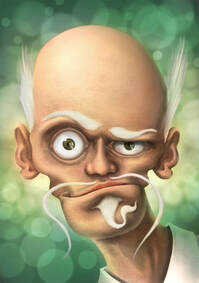 One of our authors One of our authors The answer is that there is no short answer. We can’t point our finger at the work of one of our authors and say “Because we gave away one of his books for free, we then sold more by him” (or her as the case may be). There are some people who do free book giveaways in order to generate lists of email addresses they can use for marketing - you have to email a certain address to get your free copy. We don't do that. We think it's a little bit underhand. When we do a free book giveaway it is always done through one of the etailing sites so that we don't know the email address of the beneficiary. Or we allow a direct download from this website, for which you don't have to provide an email address. (see our "Freestuff" tab to find out what's on offer) But to get back to the point, let’s take this from first principles. If you are trying to get people to buy more books by the same author, then it follows that they must have more than one book available. So, for first time authors, this isn’t going to do them much good. You may think that is stating the obvious, but it is amazing how many first-time authors do free giveaways in the hope of stimulating sales. Just goes to show how hope can delude people sometimes.  “But it will get my name noticed.” Some authors will reply. No, it won’t. Your name will only be noticed by people who take a free copy of your book. OK, they may come back for your next book, but you haven’t even published that yet, so by the time you do, your name will probably have been forgotten again. For authors who have multiple, but disparate, titles it is hard to see a connection between the sales of titles that have no connection to the one given away for free, ie books that are about different groups of characters, even if they are in the same genre. If you track your sales and there is a sudden surge of interest in some titles, then it does suggest that the free giveaway had some influence. But if the change in sales is less dramatic it could just mean that some new readers have discovered your books and it has nothing to do with the free giveaway. Indeed, the new readers may not even have read the free book and might buy it later if they like the ones they have bought.  It is in sales of books that are written as a series that we see the greatest effect of free giveaways. If it is Book 1 of the series that is given away (which is the sensible way of doing things) then we know that Books 2, 3 etc are probably going to increase their sales if the readers of Book 1 enjoyed it. So, if you are an author that writes a series, then this is something worthy of your consideration. What about books written as ‘tasters’ – stories that are less than full length books which are given away as an introduction to the series. These are usually a prequel, but they don’t have to be.  I have to say we have seen very little evidence that those justify the amount of work that is invested in them. If you know differently, then do get in touch and tell us. There are a couple of issues with tasters. The first is the amount of time they take to write. Every author has some idea of how long it takes them to write a full-length novel, but does writing a half-length ‘taster’ story take half the time? Does it take less, or does it take more? And we all know that Benjamin Franklyn said that “Time is money.” Are you going to generate enough sales of your taster to make it worth the investment of time that you have made in the writing of it? You hope you will, of course, but I’ve already mentioned how hope can delude us. 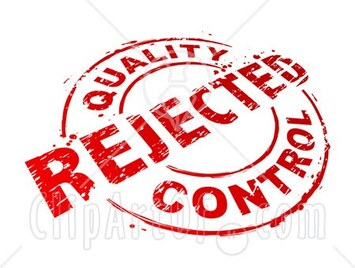 The other issue is quality. I have read some taster novels which are nowhere near as good as the books they seek to promote. Perhaps it’s a psychological thing and the author subconsciously doesn’t try so hard to write a good story for a work they know is going to be given away for free. And if the taster isn’t good enough, it isn’t going to encourage sales of the full price book. That doesn’t apply to all tasters, of course. I have also read some that are brilliant and a good advertisement for their product. It just isn’t a universal truth. But is it enough just to give the book away for free? Should you do more? Yes, you should. 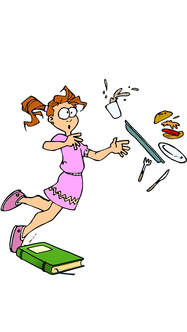 As with all books, readers aren’t going to stumble across your free book by accident. OK, most book etailing sites maintain lists of their free books, so your offering will appear there. But it isn’t the marketing channel you need to appear in. The sorts of readers who haunt the listings of free books are the sort who want to read, but don’t want to buy books. Yes, they’ll download your book because it is free, but there is a good chance they won’t come back and buy the ones they would have to pay for. They’ll be back browsing the lists of free books, looking for their next read No, you need to entice the book buying public, not the freebie lovers. And that means promoting the fact that you have a freebie on offer which they might consider looking at. Those are the readers who will buy Book2, 3 etc of the series. You may also get some reviews, which always help sales. So wherever and however you promote your books, that is where you also have to promote your free offer. You may even have to invest in advertising.  I know it sounds insane to spend money in order to give something away for free, but it does work. Thousands of businesses pay to advertise free and ‘buy-one-get-one-free’ offers and they wouldn’t spend the money if it didn’t work. You need to think of this as a long-term strategy. Yes, it may cost you £50 to run a Facebook advert for your free book, but if you get enough sales of the rest of the books in the series, the cost of that advert could be repaid many times over. So, for those of you who are considering doing a free giveaway, the key points to take away from this blog:
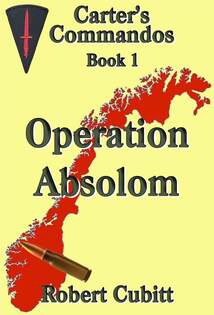 And if you are reading this before midnight on 31st October, you can still get “Operation Absolom” by Robert Cubitt for free. Just click the cover image to find out more. If you have enjoyed this blog or found it informative, why not sign up for our newsletter. At least, that way, you won't miss out on our next free offer. Just click on the button below.  Authors have a bit of a love-hate relationship with reviews. We all want them, because we know that reviews help to sell our books. But we don’t want the bad reviews, because they have the opposite effect, or so we believe. But the one thing an author can’t predict, is how any reader will view their work. No matter how good your book is, there is almost certainly going to be someone who doesn’t like it. Regular readers of this blog will recall the one where we noted Oscar Wilde’s less-than-charitable views on Dickens’ book “The Old Curiosity Shop” and Dickens was considered to be a giant of the Victorian literary world. 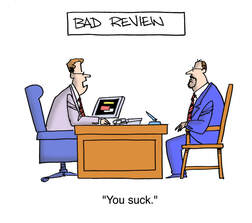 That’s the problem with reviews, we have no control over them. But a bad review can serve a purpose for an author. If we can identify what the reader didn’t like about our book, we can make sure we don’t do the same thing next time. After all, the definition of insanity is doing the same thing over and over and expecting a different result, so bad reviews provide learning opportunities. And if you are the sort of author that thinks they have nothing to learn from readers, you are probably doomed to get bad reviews forever. As a reader I do take a look at reviews, but I don’t actually read that many of them. You may think that is a bit odd, to look at them but not read them, but there is method in my madness. I mainly look at the split between the good reviews and the bad ones. If there are more good reviews than bad, then I’ll probably give the book a chance. 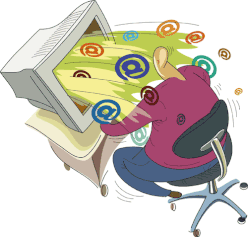 I do sometimes look at the bad reviews, to find out why the readers didn’t like the book. But I am very selective about the ones to which I pay attention. If a bad review is well written, in good English and provides valid reasons for why the reader didn’t like the book, then I’ll take it seriously. But if the bad review is just a short sentence which is mainly abuse, or if it’s written in a style that's the internet equivalent of a blunt crayon, then I don't take it seriously. I started using this method a few years ago, after reading hotel reviews on TripAdvisor. If someone has given a hotel a bad review, when everyone else seemed to be fine with it, then there has to be a valid reason (or so I thought). 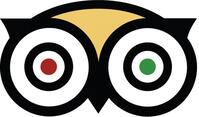 I’ll give you an example. We were going to visit Crete and wanted a nice hotel, but at a budget price. I found one that seemed to fit the bill and started reading the reviews. Most people were very positive about the hotel, but there were a few one-star reviews, which worried me a little. So I looked at one of them. The author of the review complained bitterly about a road running between the hotel and the beach. Apparently, the hotel’s website hadn’t mentioned it and he thought that he should have been told about it, as the hotel was listed as “beachfront”.  Well, we booked that hotel anyway, because both the location and price were right. And the road? Well, we expected to find a six-lane superhighway with cars whizzing up and down all day and all night at 100 mph. What we found was a very narrow road used to service the beachfront hotels and the number of vehicles using it each hour could probably be counted using the fingers of one hand. And they were being driven with caution. It took three paces to cross it (I counted them) and there we were, on the beach. So how was the hotel otherwise? It was OK. Actually, it was more than OK. We had a very nice week, ate some good food (OK, it wasn’t Michelin star standard, but it was tasty and plentiful) and drank some nice wine and all within our budget. We were happy to post a 4-star review after we got home. And that’s why reviews have to be treated with caution, especially the bad ones. People get upset about the strangest things and they take it out on whoever is handy. In the case of TripAdvisor, it’s the poor hotel owners who bear the brunt and in the case of books it’s the author of the book they just read. 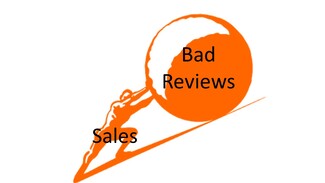 So, if you are an author and you get the odd bad review, please remember that you can’t please everyone. And if you are a reader, please remember that if the majority of other readers thought a book was worth four or five stars, then it is probably worth giving it a go. And if you are a reader who is going to post a bad review, please make sure that the standard of English you use is at least as good as that of the author you are about to criticise. It also helps considerably to say why you didn’t like the book. You will have your reasons, and the whole purpose of the review system is to share those reasons with others. Is there a “good way” of writing a book review? Author Luisa Plaja offers this advice. 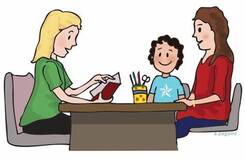 Write a couple of sentences telling the reader what the book is about. Keep it short and simple; this shouldn’t become a synopsis of the book. For those readers familiar with the term “elevator pitch”, think about it like that. Tell the readers what you liked about the book. Even the worst books have some redeeming features, so make sure you write about those. After all, the author deserves praise for giving you the things you enjoy.  Tell the readers what you didn’t like about the book. This is the justification for awarding anything below 5 stars for the review. Even if you still award 5 stars, there may be something that you didn’t like, even if it was only a minor flaw. Be quite specific about what you did and didn’t like. Was it a character? Was it something in the plot? Was it the author’s use of language? Focus on why you didn’t like whatever it was, because that is what people always want to know. Whatever it was, the author may benefit from your insights and they can then correct the issue in their next book – which means you get to read better books. Obviously, the balance between the lengths of the paragraphs describing what you liked and what you didn’t like should reflect how you felt about the book as a whole. If you liked the book, then the “good” paragraph will be far longer than the “bad” paragraph.  Summarise your review with your overall impressions. If you are mainly positive, then your summary should also be positive and vice versa. But don’t just repeat the previous paragraphs. Although Luisa Pelja doesn’t mention it, we think it is helpful to mention the genre of the book up front. After all, readers don’t want to waste their time reading a review of a book they are unlikely to buy because it isn’t in their preferred genre. Here at Selfishgenie, we also make our recommendations clear: yes, definitely read this book if you like this sort of thing, or no, steer well clear. Is there anything a reader shouldn’t put in a review. Luisa Pelja doesn’t offer any advice on that, so we will.  Don’t be abusive. First of all, the author didn’t set out to write a bad book so they shouldn’t be abused for trying their best. Secondly, your opinion of the book is just that: an opinion. It isn’t a fact. Abuse isn’t constructive – it’s destructive. There is no beauty in destruction. Finally, abuse tells the world more about the abuser than the abused. The book reviews we publish on our website mainly conform to the format described by Luisa Peljac, but we do go further. That is because our reviews are also blogs. They are intended to go further than just looking at the book; they also provide information about the author, what sort of people may enjoy the book and maybe a few homespun stories about how the reviewer stumbled across the book in the first place. But for reviews that are posted on Amazon, Goodreads etc we stick to the basic format described above. And finally, if you have enjoyed this blog, found it entertaining or informative (or maybe all of those), be sure not to miss the next edition by signing up for our newsletter. We promise not to spam you. Just click the button.  If you are with someone who gets bitten by a snake, what do you do to help them? If you are thinking “I cut the wound and suck out the poison” then you are wrong and the person who was bitten will probably die. Such is the power of Hollywood movies that millions of movie goers have grown up thinking that, in an emergency, that’s the way you treat a snake bite. In a similar vein (pun intended), you may think that the way to get rid of leeches is to burn them off with a cigarette end. I’ll give the correct methods for dealing with both those things at the end of the blog if you want to stick around, but the point I’m making is about research and why it is so important for authors to do it properly, rather than relying on what they think they know – because they may be wrong. 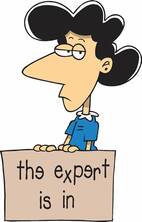 Many readers follow a particular genre of books because they have an interest in the subject the author is writing about. People interested in the “Old West” will read westerns, people who are interested in history will read historical fiction, usually focusing on a particular period. And, let’s face it, with so much crime drama on TV, everyone thinks they know about the law these days. But because those readers have an interest in those things, they tend to be quite knowledgeable - which makes life difficult for the author. If your reader knows as much, or more, about the subject than the author knows, then the author quickly loses credibility if they get stuff wrong. And if the author loses credibility, they lose the reader. They may also get an adverse review for their book, which will affect future sales. Which is why research is so important.  We have received submissions from authors where the research has been poor or non-existent and when we have provided feedback on that, they have responded by pretty much saying “research is for losers”. OK, they may not have used those precise words, but that was the tone of the message. Or they have pointed us in the direction of the TV show or movie from which they got their information. Which brings us back to snake bites and leaches. TV shows and movies are produced for the purposes of entertainment. Some have high production values and take care to get their facts right. Some just want to get a story onto the screen and aren’t bothered about the facts. Sadly, it’s the latter that seem to work their way into the brain. 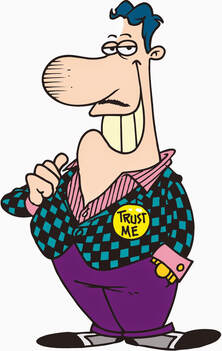 If you are an author that wants to be regarded as credible, then taking care about facts is important. You are taking the reader on a journey in which you will make your characters do some incredible things. Some of those things may not be possible in real terms, but you want you readers to believe they are. Which means that they should trust you and the way you get them to trust you is by getting the real stuff right; the stuff the readers know about already. And if you have to stretch the truth in order to make a story work then it is good manners, at least, to tell the reader that you have stretched the truth and in what ways you did it. For example, if you have mentioned an historical battle and placed it in the same year as you have set your story, when in fact it was a year or two earlier or later, then tell your readers that and tell them why you did it. They will respect you for your honesty and, more importantly, they won’t embarrass themselves in the pub when they argue about it with their pals.  So, what is research? One dictionary gives the definition as “the systematic investigation into and study of materials and sources in order to establish facts and reach new conclusions.” Note the use of the word “systematic” in the definition. You have to know what you are looking for and that directs you to the places where you will find it. Asking the right questions is always a good start. 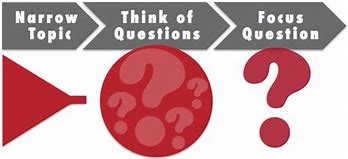 Research methodology Research methodology For authors this means asking questions about the people, places, events, dates, times, artefacts, fashions, technology, science, theories, outcomes and a whole lot more, depending on the genre in which the author writes. What isn’t research? We’ve already mentioned TV and movies (though factual programmes can be helpful) but it also isn’t using the internet. That is a useful tool, but it is littered with inaccuracies and if you aren’t an expert yourself, you may end up repeating someone else’s errors.  Comedian Dave Gorman Comedian Dave Gorman I’ll give you an example. The Wikipedia page for British comedian Dave Gorman stated that he had achieved a certain feat on a bicycle (he is a keen cyclist). It even showed an image of him in full lycra (spandex for our American readers), standing next to his bike. He hadn’t achieved that feat, something to which he freely admitted. The citation that backed up the statement was for a small circulation local newspaper that had got its facts wrong. Gorman told Wikipedia that and they removed the offending reference. A week later it was back in again, with the same citation, because the person who had edited the article claimed that the newspaper article was correct and Gorman was wrong. Yes, the person who knew what he had and hadn’t done was deemed to be the one in error. And that’s the internet for you.  So, what research do you do? No matter what the subject, someone will have written a book about it. In all probability there will be more than one book. So that’s where you start. Reading more than one book on a subject gives the author several things:
Yes, reading books is time consuming. But better to take a bit of time and get a better book, than take short cuts then get bad reviews because you’ve got your facts wrong. 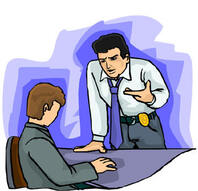 Interview witnesses Interview witnesses If events are more recent and there are living witnesses, then research is interviewing them. Witnesses add real texture to a story and turn dusty old facts into reality. Even better, they can add an emotional depth to events. This approach also works with getting information from experts. Talk to doctors, police officers, lawyers, scientists, soldiers etc to find out what really happens behind the scenes. This is especially important when it comes to procedural issues. These experts can also explain things in simpler terms than some of the books on the subject. All those people can also tell stories of their own experiences, which can be woven into the author’s plot. Of course, interviewing people takes time, but with modern technology it can often be done without leaving the house. At least make the effort.  Visit locations Visit locations Finally, visit the real locations and study the places where events happened, or where you want them to happen in your plot. It is quite clear that Dan Brown had never actually visited Rome before he wrote “Angels and Demons” and that is very apparent to people like me who have been there and then threw the book across the room in disgust at him getting so much wrong. Yes, location visits are expensive, but they are also tax deductible. *  The last resort The last resort Only if you are completely unable to do any of the above should you rely on the internet and even then you should read as many sources as possible to make sure that you aren’t being misled. There are many websites that actually hold first-hand accounts of events and extracts from other reliable sources. Wikipedia may be good for a quick overview of a subject, but don’t rely on it for some of the detail (see above re Dave Gorman). And never rely on TV shows or movies. So, now that I’ve exhausted the subject of research, how do you deal with snake bites and leaches? Snake bite. Remove jewellery or watches from the affected limb, in case the injured area swells up and cuts off the blood supply. Keep the wound below the heart to slow the circulation. Seek medical help immediately. It helps to be able to identify the type of snake, but don’t take any further risks in doing so. By the way, the reason cutting the wound and sucking doesn't work is (a) because the poison spreads too quickly and (b) any poison that is sucked out will only be a fraction of what was injected. Removing leaches. The best thing to do is to let them drink their fill. Once they finish feeding, they will just drop off (it takes about half an hour). If you don’t want to wait, then identify the head and apply pressure on either side by sliding the thumbs gently towards the head. The head should pop out and the leach can be lifted off. Burning the leach with a cigarette will work, but it runs the risk of burning the skin, which can then become infected, which will cause way more harm than the leach. Yes, we did research those answers before posting them. * This doesn’t mean that authors can take a holiday and then deduct it for tax purposes. There must (a) be a published book resulting from the trip and (b) only the proportion of the trip that was actually spent doing research can be deducted, not the time spent lying on a sun bed. Incidentally, the cost of books and travel to undertake interviews is also tax deductible. If you have enjoyed this blog or found it information, and want to make sure you don't miss future editions, why not sign up for our newsletter? Just click the button.  Mutual support Mutual support To see the way that authors support each other on social media (for the most part) it would be easy to think that things have always been that cordial in the writing fraternity. Sadly, they have not. In the past it was quite common for authors to insult each other. Even in quite recent history there has been the odd barbed comment. Now, I must make it clear that I am not advocating a return to such uncivilised behaviour. But a good insult, delivered with wit, can be a source of humour. 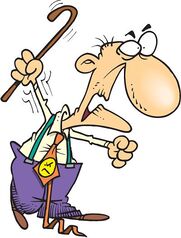 An Ancient Greek being insulting An Ancient Greek being insulting While there is evidence that goes all the way back to Ancient Greece, when playwrights used to insult each other’s works, they tend to become more witty as we get closer to modern times. Shakespeare is now a revered literary figure throughout the world, but it wasn’t always so. In his own time he came in for a fair share of insults. Fellow playwright Ben Johnson once said of the Bard of Avon “I remember, the players have often mentioned it as an honour to Shakespeare that in his writing (whatsoever he penned) he never blotted out a line. My answer hath been, would he had blotted a thousand.” OK, it’s not quite up there with “Your Momma” but it’s quite a damning criticism. 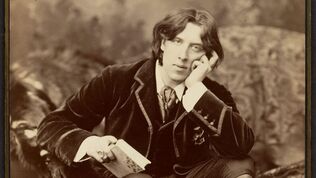 Irish poet and playwright Oscar Wilde, thinking up new insults. Irish poet and playwright Oscar Wilde, thinking up new insults. Oscar Wilde is well known for his caustic wit. After spending time “at Her Majesty’s pleasure” as a guest at Reading high security hotel (prison) he commented “If this is the way Queen Victoria treats her prisoners, she doesn’t deserve to have any”. However, that is beside the point. On writing and writers Wilde had a lot to say. This one probably holds good today. “In olden days, books were written by men of letters and read by the public. Nowadays books are written by the public and read by no one.” If you are an author and are having trouble getting readers, Oscar Wilder foresaw your pain. 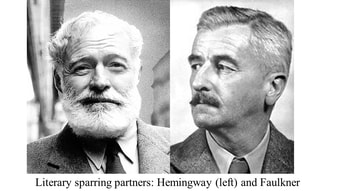 Over the years there have been some great rivalries in literature and the rivals didn’t always play nicely. William Faulkner was accused by Ernest Hemingway of being under the influence of alcohol while he wrote. He said “I can tell right in the middle of a page when he’s had his first one.” Given Hemingway’s own reputation as an imbiber, that may be seen as a pot-and-kettle sort of remark. In retaliation Faulkner quipped. “He has never been known to use a word that might send a reader to the dictionary.” Personally, I’d find that a recommendation. When I’m reading, I don’t want to have to keep looking up words to find out what the author is talking about. But maybe that’s just me. But in return for that slight, Hemingway came back with “Poor Faulkner. Does he really think big emotions come from big words?” Hemingway seems to have attracted a lot of criticism from fellow writers. In 1972 Victor Nabokov said, “As to Hemingway, I read him for the first time in the early ‘forties, something about bells, balls and bulls, and loathed it.” I was always taught not to speak ill of the dead and Hemingway died in 1961, so he didn’t even get the right of reply.  Lord Byron, who should be careful of whom he insults if he's going to dress like that! Lord Byron, who should be careful of whom he insults if he's going to dress like that! Two great rivals of late 18th and early 19th century poetry were Lord Byron and John Keats. I think it was true to say that Byron wasn’t exactly an admirer of Keats, if this quote is anything to go by: “Here are Johnny Keats’ piss-a-bed poetry, and three novels by God knows whom… No more Keats, I entreat: flay him alive; if some of you don’t I must skin him myself: there is no bearing the drivelling idiotism of the Mankin.” Ouch.  A victim of misogyny? Jane Austen A victim of misogyny? Jane Austen Male authors aren’t always gentlemen. In an era when it was considered a great social gaff to insult a woman, Ralph Waldo Emerson said of Jane Austen’s writing “Miss Austen’s novels . . . seem to me vulgar in tone, sterile in artistic invention, imprisoned in the wretched conventions of English society, without genius, wit, or knowledge of the world. Never was life so pinched and narrow. The one problem in the mind of the writer . . . is marriageableness.” But he wasn’t the only one to be critical of Austen. Mark Twain, never a shrinking violet, said of her work “I haven’t any right to criticize books, and I don’t do it except when I hate them. I often want to criticize Jane Austen, but her books madden me so that I can’t conceal my frenzy from the reader; and therefore I have to stop every time I begin. Every time I read ‘Pride and Prejudice,’ I want to dig her up and hit her over the skull with her own shin-bone.”  J K Rowling J K Rowling And things haven’t changed much since. Harold Bloom proved himself to be quite ungentlemanly when he said of J K Rowling “How to read ‘Harry Potter and the Sorcerer’s Stone’? Why, very quickly, to begin with, and perhaps also to make an end. Why read it? Presumably, if you cannot be persuaded to read anything better, Rowling will have to do.” Bearing in mind that Rowling aimed her books at younger readers, that was a trifle harsh coming from an adult. Bloom was about 70 then, so a little old for Harry Potter I would have thought. Sometimes these things can form chains. Gore Vidal said of Truman Capote “He’s a full-fledged housewife from Kansas with all the prejudices.” While Capote said of Jack Kerouac “That’s not writing, that’s typing.” 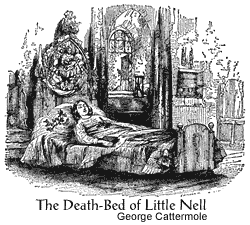 But for my final literary insult I return to the daddy of them all, Oscar Wilde, Having read The Old Curiosity Shop, by Charles Dickens, Wilde offered this opinion: “One must have a heart of stone to read the death of Little Nell without laughing.” I wish you better criticism than that, and for my closing quotes I’ll return firstly to Ernest Hemingway, “Critics are men who watch a battle from on high and then come down and shoot the survivors”. 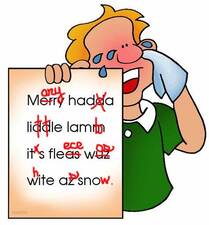 Constructive criticism Constructive criticism And secondly to Brendan Behan: “Critics are like eunuchs in a harem: they know how it’s done, they’ve seen it done every day, but they’re unable to do it themselves” Just remember that last one the next time you get a less than fulsome review. And if you are going to be critical of another author's work, at least try to make it witty. Who knows - you might even be quoted in a blog like this. If you have found this blog interesting or informative and you would like to make sure you don't miss future editions, why not sign up for our newsletter? Just click the button below. We promise not to spam you and you can unsubscribe at any time.  You’ve written this great book, but you can’t seem to capture the interest of an agent or publisher. You’ve sent it to every agent and every publisher in the listings, but all you get back is rejections and sometimes not even that. How long does this go on for before you ask yourself “Is it me?” On the other hand, you may feel that your work isn’t good enough for publication, so you may not have submitted it to an agent or publisher because you think it will be rejected. Why might you feel that way? Let me introduce you to the Dunning-Kruger effect.  Stupid people don't know they are stupid! Stupid people don't know they are stupid! This is a hypothesis in social psychology postulating that people of lower capability don’t know their capabilities are low, while people of higher capability don’t always realise how capable they are. This has sometimes been unfairly paraphrased as “stupid people don’t know they are stupid” and, of course, the opposite of that is that clever people sometimes don’t realise how clever they are. I have to say up front that there are critics of the hypothesis. Firstly, in some cultures there is great emphasis placed on modesty, so a clever person would never claim to be cleverer than someone else, because that would be immodest. Similarly, in some cultures it is considered rude to criticize others, so honest feedback on poor performance isn’t always provided. The other flaw is that the studies that were carried out to test the hypothesis used psychology students as the subjects and they aren’t representative of society as a whole. But leaving aside those criticisms, there is consistently strong evidence that the Dunning -Kruger effect is real . But what do we know about it?  David Dunning and Justin Kruger are the two American psychologists that came up with the hypothesis (published in 1999) after noting that some of their poorer performing students didn’t seem to realise how poor their performances were. They also didn’t improve after being given feedback on their performance. So Dunning and Kruger went looking for an underlying cause for this misperception of capability. To test the hypothesis, subjects were asked to complete some self-assessment tests on a range of subjects. After being given their results, the students were asked to rank themselves against their peers. Those that performed the worst tended to rate themselves higher than some of their peers, while those that had performed the best tended to rate themselves lower than some of their peers. 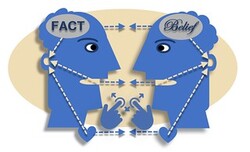 Subjects were interviewed after completing the exercise and asked why they had rated themselves as they had. The more capable students, who found the tests easiest, tended to think that their peers would also find the tests easy, so they had ranked themselves lower. Conversely, the poorer performing students, who had found the tests difficult, assumed their peers would also find the tests difficult and ranked themselves higher. This betrayed an internal bias. Poor performing students overrated their own performance, while better performing students overrated the performances of their peers. Even after providing feedback, these internal biases appeared to persist.  At this point I should inject a word of caution. The poorest performing students didn’t rank themselves in the highest performing bracket. So, a D grade student didn’t think they were performing as well as an A grade student. But they did assume they were performing as well or better than a C grade student. So, what has this to do with finding an agent or a publisher? Well, if we extend the Dunning-Kruger hypothesis into the world of publishing, an author who isn’t a great writer may, thanks to this internal bias, think that their work is better than it is. This will make it hard for them to understand why they are getting rejection after rejection.  On the other hand, a good writer may feel that their work isn’t as good as that of other good writers and that may discourage them from submitting their work to an agent or publisher in the first place, because they assume it will be rejected. If that is the case, is there a solution for the writer? There may be. The first thing to do is to understand that a cognitive bias actually exists and recognise the effect it might be having on our own perception of ourselves. We need to actually ask if we are as good (or as poor) as we think we are. And the only way to answer that question is to seek out unbiased feedback.  Many of you will already have worked out that I’m talking about beta readers. Friends and family aren’t good beta readers, because they don’t want to hurt the author’s feelings. They would tell William McGonagall* that his poetry is great if he was a friend or relative. This means that if an author wants honest feedback on their work, the beta reader must be a stranger, so that they can provide feedback that is free of any bias caused by emotional involvement. But there is a trap here that many authors – and beta readers – aren’t aware of. While a beta reader may start off being an unbiased stranger, that relationship changes over time. Authors want the best feedback, so they will nurture a valued beta reader and use them again and again. But the beta reader is bound to have an emotional response to that nurturing and that may affect the nature of their feedback. In other words, they may develop an emotional bond with the author which could classify them as a friend, thereby losing the independent viewpoint that made them so valuable in the first place. You might think of it as the Catch-22 of beta reading. If you are starting to think of a beta reader as a friend, then they have lost their value, but not treating them as a friend risks losing them. Ideally an author will find new beta readers for each new work. But that means a lot of work identifying and cultivating them, only to have to do it all over again for the next book and the next.  Florence Foster Jenkins Florence Foster Jenkins But being aware that the trap exist in the first place is a good first step. Be aware that the beta reader may want you to like them almost as much as you want them to like your work. As soon as you have exchanged email addresses, an emotional bond is starting to form, so it is necessary for both authors and beta readers to try to maintain an “arm’s length” relationship. However, having independent feedback is no use if you don't respond to it. Your beta readers have given you feedback - use it to improve your work. If you ignore it because it isn't what you want to hear, you have fallen into another trap and the Dunning-Kruger effect even predicts that trap because it identified that subjects often didn't respond to feedback on their performance. Who knows, you may improve your work enough to find an agent or a publisher. * William McGonagall (1825-1902) was a Scottish poet whose poems were so bad that he became famous. People paid to see him read his poems for the comedy value (his work was quite serious in its subject matter). McGonagall, however, was deluded enough to interpret that as evidence of his genius. See also Florence Foster Jenkins. If you have enjoyed this blog or found it informative, why not make sure you don't miss future editions by signing up for our newsletter. Just click the button below. We promise not to spam you and you can unsubscribe at any time. |
AuthorThis blog is compiled and curated by the Selfishgenie publishing team. Archives
March 2025
|
 RSS Feed
RSS Feed